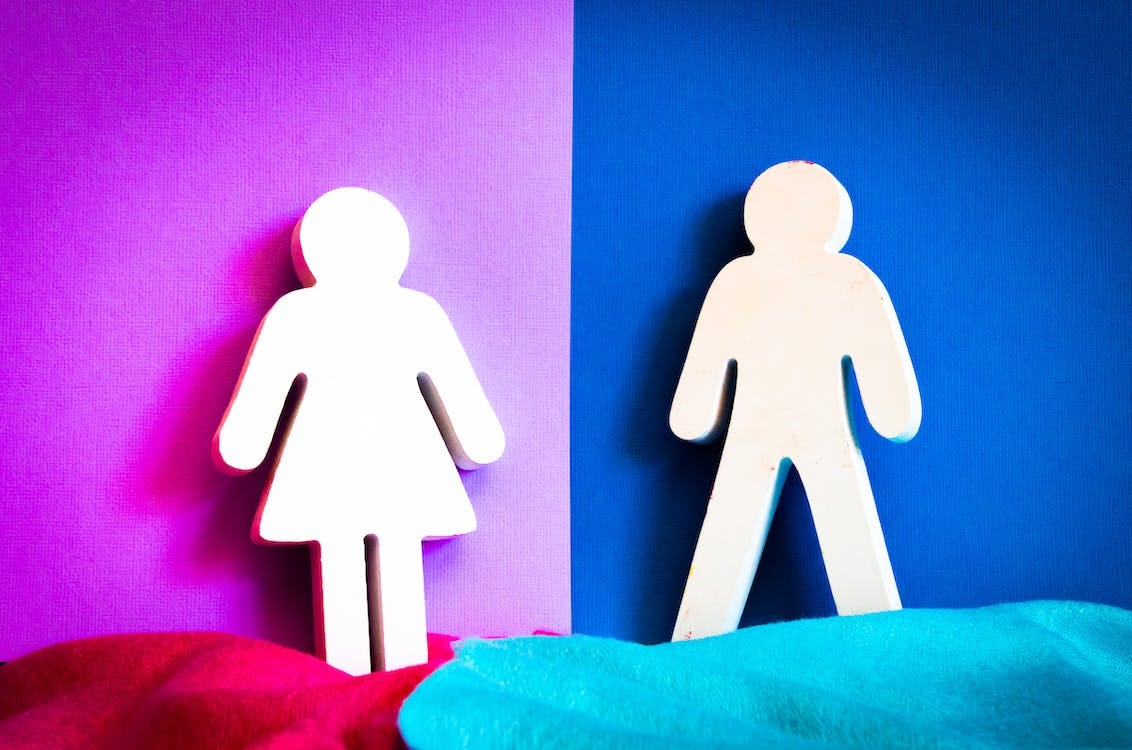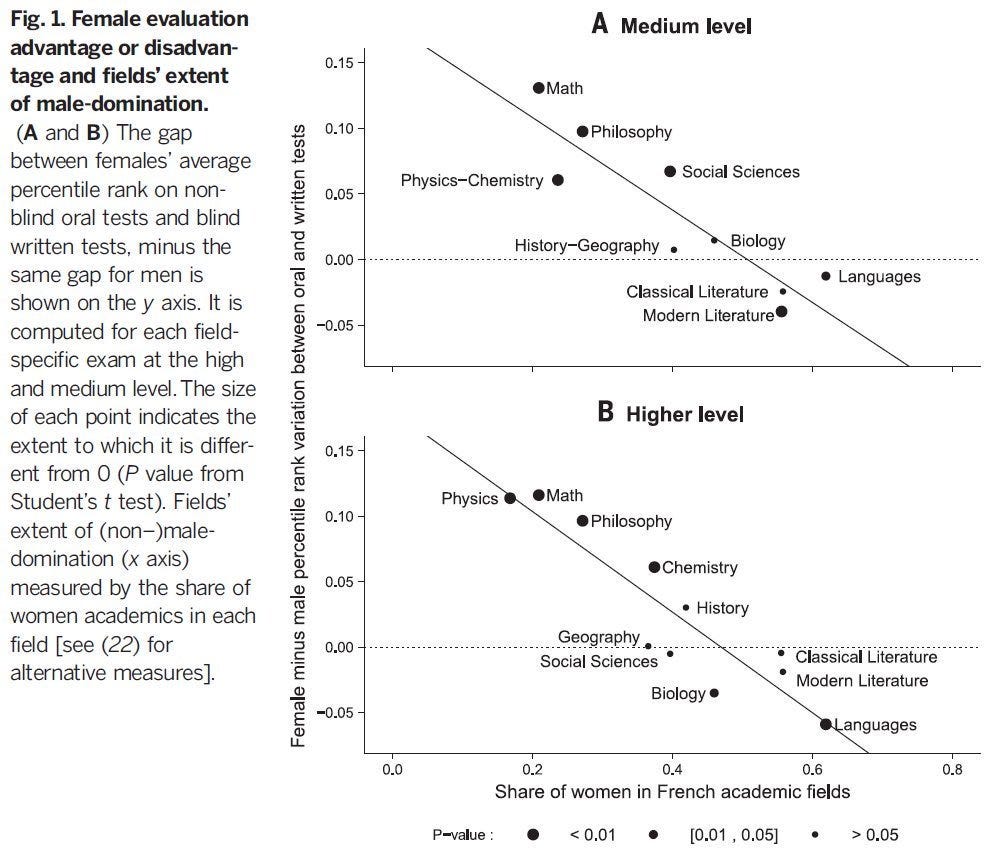Three Interesting Findings: Gender Issues Edition
Is the man-hating feminist a myth? Would people rather harm men or women for the common good? And are teachers biased toward female students or male students when it comes to dishing out grades?

My main post for this week is going be a few days late. It’s about a new paper I’m a co-author on, which will be released this coming Monday. The paper is under embargo, so I can’t write about it till then. In the meantime, here’s a brief post summarizing some interesting findings revolving around gender issues. Enjoy!
Contrary to the popular stereotype that feminists hate men, a recent paper found that the average feminist is just as positive about men as the average non-feminist – and no more negative than the average man. That said, self-described radical feminists and cultural feminists do have a less rosy view of men, and perhaps it’s these feminists who gave rise to the male-averse-feminist stereotype (which is, incidentally, held even by feminists themselves). Still, among the majority of people who call themselves feminists, anti-male antipathy is no more common than it is among those who don’t. Here’s the abstract of the paper; you can read the whole thing here.
People are more willing to harm men than women for the common good. That is, they’re more willing to endorse policies and interventions that cause collateral damage to men than to women. The asymmetry is especially pronounced among women, people on the political left… and feminists. The authors of the paper reporting these findings - Maja Graso, Tania Reynolds, and Karl Aquino - argue that people’s greater tolerance of harm to men is actually a double-edged sword for both sexes.
The biases uncovered here suggest the possibility that women were excluded historically from exploratory research due to an aversion toward inflicting instrumental harm onto women, such as in medicine. This ultimately proved costly to women, as men’s overrepresentation in medical research yielded treatments more effective among men than women. Thus, although such an aversion may have benefitted women in the short term because women were spared incidental harm imposed by risky experiments, in the long run, experimentation on men unearthed medical and safety advancements better suited for male bodies.
You can read the full paper here.
A large French study published in 2016 found grading bias in favor of men in female-dominated subjects, but in favor of women in male-dominated subjects. Other studies find different results, so we shouldn’t treat this as the last word on the topic. It is an interesting pattern, though, and it fits nicely with my last Substack post, where I discussed the recent finding that gender bias in callbacks for job applications operates differently in female- vs. male-dominated fields. When it comes to gender bias, the sex ratio of the domain of interest seems to be an important variable!
Follow Steve on Twitter/X.




Number 2 is an obvious contradiction to number 1. If you'll sacrifice men more than women then obviously you place a lower value on men and there must be some reason for that -- how that doesn't get translated into a more negative view of men is beyond me.
Re the myth of the man-hating feminist, it strikes me that the difference between 2nd wave feminism and 4th wave feminism is so great that “feminism” is no longer a useful category. Second wave feminism, as I understand it, is to the effect that women should not suffer formal discrimination compared to men and also emphasized the importance of biologically based differences between the sexes, eg in domestic violence. This version of feminism is still very widespread—I expect that this is what most ordinary women mean when they say they are feminist. There is no reason for feminists of this type to dislike men. Fourth wave feminism is a form of identity politics based on an oppressor / oppressed narrative in which men are the oppressor. This implies that they will dislike men. This is somewhat tempered by the fact that many 4th wave feminists are heterosexual. But in some ways that makes it worse, as they (unsurprisingly) can’t find the ‘right’ man, and tend to blame men, instead of their attitude towards men, for that. Since younger women are more likely to be 4th wave, controlling for age might tease this out. I didn’t read the paper closely enough to see if they did that.